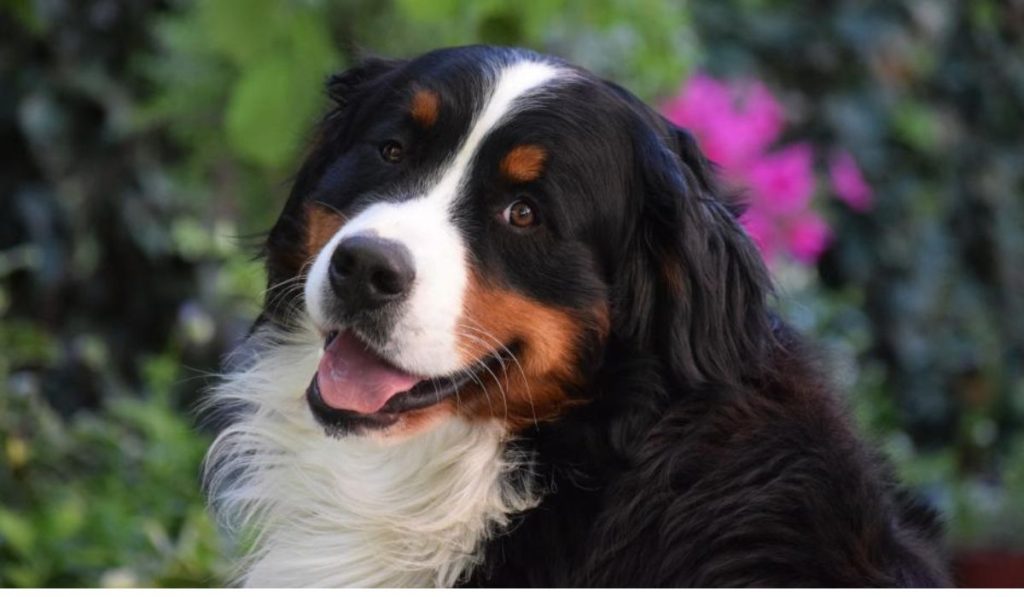puppy:rk5nf8zb4k4= Bernese mountain dog puppies are among the most adorable and charming additions to any family. These fluffy bundles of joy, with their distinctive tri-color coats and gentle dispositions, have been capturing hearts for generations. In this comprehensive guide, we’ll explore everything you need to know about Bernese Mountain Dog puppies, from their origins to their care and training.
History and Origins
Swiss Roots
puppy:rk5nf8zb4k4= Bernese mountain dog, affectionately known as the “Berner,” hails from the canton of Bern in Switzerland. These dogs were originally bred as working dogs on farms, where they excelled in various tasks such as pulling carts, herding cattle, and serving as watchdogs.
From Farm to Family
Over time, the Bernese Mountain Dog transitioned from a primarily working role to becoming a beloved family companion. Their gentle nature, loyalty, and affection for children made them ideal pets, and their popularity soon spread beyond the Swiss borders.
Physical Characteristics
Size and Growth
puppy:rk5nf8zb4k4= Bernese mountain dog puppies are born relatively small but grow rapidly in their first year. At birth, they typically weigh between 1-2 pounds, but by adulthood, males can reach 80-115 pounds, while females generally weigh between 70-95 pounds. Their growth rate is one of the fastest among large dog breeds.
Coat and Colors
One of the most distinctive features of Bernese Mountain Dog puppies is their luxurious, thick double coat. The outer coat is long and silky, while the undercoat is soft and dense. Their classic tri-color pattern consists of a jet-black base coat with rich rust and bright white markings. The white “Swiss cross” on their chest is a hallmark of the breed.
Facial Features
Bernese puppies have expressive, almond-shaped brown eyes that seem to convey a deep wisdom even at a young age. Their ears are medium-sized and triangular, hanging close to their head. As they grow, their muzzle elongates, giving them the noble expression characteristic of the breed.
Temperament and Personality
Gentle Giants
Bernese Mountain Dog puppies are known for their exceptionally gentle and patient nature. They are often described as “gentle giants” due to their large size combined with their soft temperament. This makes them excellent companions for families with children, as they are naturally protective yet incredibly gentle with little ones.
Affectionate and Loyal
These puppies form strong bonds with their families and are known for their unwavering loyalty. They thrive on human companionship and often try to be “lap dogs” despite their large size. Bernese puppies are happiest when they are included in family activities and given plenty of attention and affection.
Intelligence and Trainability
Bernese Mountain Dog puppies are intelligent and eager to please, which makes them relatively easy to train. They respond well to positive reinforcement techniques and consistent training. Early socialization is crucial to ensure they grow into well-adjusted adult dogs.

Care and Maintenance
Exercise Needs
While Bernese Mountain Dog puppies are energetic, it’s important not to over-exercise them during their rapid growth phase. Short walks and play sessions are sufficient for young puppies. As they grow, their exercise needs increase, but they generally have moderate energy levels compared to some other large breeds.
Grooming Requirements
The luxurious coat of a Bernese Mountain Dog puppy requires regular grooming. Weekly brushing is essential to prevent matting and to control shedding. During shedding seasons (typically spring and fall), daily brushing may be necessary. Regular baths, nail trims, and ear cleaning should also be part of their grooming routine.
Nutritional Needs
Proper nutrition is crucial for the healthy development of Bernese Mountain Dog puppies. They require high-quality, large-breed puppy food that supports their rapid growth while helping to prevent joint issues. It’s important to follow feeding guidelines carefully, as overfeeding can lead to obesity and exacerbate potential joint problems.
Health Considerations
Common Health Issues
Like many large breeds, Bernese Mountain Dogs are prone to certain health issues. Some common concerns include:
- Hip and elbow dysplasia
- Bloat (gastric dilatation-volvulus)
- Cancer
- Progressive retinal atrophy
- Von Willebrand’s disease
Responsible breeders perform health screenings on parent dogs to minimize the risk of these conditions in puppies.
Lifespan
Unfortunately, Bernese Mountain Dogs have a relatively short lifespan compared to many other breeds. On average, they live between 6-8 years, although some may live up to 10 years or more with proper care and good genetics.
Training and Socialization
Early Training
Training should begin as soon as you bring your Bernese Mountain Dog puppy home. Start with basic commands like “sit,” “stay,” and “come.” Use positive reinforcement techniques such as treats and praise to encourage good behavior. Consistency is key in training these intelligent puppies.
Socialization
Proper socialization is crucial for Bernese Mountain Dog puppies. Expose them to a variety of people, animals, and environments from an early age. This helps prevent shyness or fearfulness in adulthood. Puppy classes can be an excellent way to combine training and socialization.
Addressing Common Behavioral Issues
Some common behavioral issues in Bernese Mountain Dog puppies include:
- Excessive chewing
- Jumping up on people
- Pulling on the leash
Address these issues early through consistent training and by providing appropriate outlets for their energy and natural behaviors.
Choosing and Adopting a Bernese Mountain Dog Puppy
Finding a Reputable Breeder
When looking for a Bernese Mountain Dog puppy, it’s crucial to find a reputable breeder. Look for breeders who:
- Perform health tests on parent dogs
- Allow you to visit and meet the puppies and their parents
- Provide health guarantees and ongoing support
- Are knowledgeable about the breed and ask you questions to ensure a good fit
Adoption Options
While less common, it is possible to find Bernese Mountain Dog puppies or young adults in rescue organizations. These dogs may come with unknown backgrounds but can make wonderful pets for the right families.
Preparing Your Home
Before bringing your Bernese Mountain Dog puppy home, make sure you have all the necessary supplies, including:
- High-quality puppy food
- Comfortable bed
- Crate for training and safety
- Puppy-safe toys
- Grooming supplies
- Collar, leash, and ID tags
FAQS
How much exercise does a Bernese Mountain Dog puppy need?
Bernese Mountain Dog puppies require moderate exercise, but it’s important not to over-exercise them during their rapid growth phase. For young puppies, short walks of 5-10 minutes twice a day, combined with playtime in a secure area, are sufficient. As they grow, gradually increase exercise duration and intensity. Always monitor your puppy for signs of fatigue and avoid high-impact activities until they’re fully grown to protect their developing joints.
Are Bernese Mountain Dogs good with children?
Yes, Bernese Mountain Dogs are generally excellent with children. They are known for their gentle, patient nature and often form strong bonds with kids in their families. However, as with any large breed, supervision is essential, especially when the dog is still a puppy. Teach children how to interact safely with the dog, and always monitor interactions to prevent accidental injuries due to the dog’s size.
How often should I groom my Bernese Mountain Dog puppy?
Bernese Mountain Dog puppies should be groomed regularly to maintain their beautiful coat and overall health. Brush your puppy at least 2-3 times a week to prevent matting and control shedding. During shedding seasons (typically spring and fall), daily brushing may be necessary. Bathe your puppy every 6-8 weeks or as needed. Regular nail trims, ear cleaning, and teeth brushing should also be part of their grooming routine.
What health tests should I ask about when getting a Bernese Mountain Dog puppy?
When getting a Bernese Mountain Dog puppy, ask the breeder about the health tests performed on the parent dogs. Important health screenings include:
- Hip and elbow dysplasia evaluations
- Eye examinations
- Cardiac evaluations
- Von Willebrand’s disease testing
- Cancer screenings (if available)
Reputable breeders will provide documentation of these health tests and be transparent about the health history of their breeding lines.
How big will my Bernese Mountain Dog puppy get?
Bernese Mountain Dogs are a large breed, and puppies grow rapidly in their first year. On average, adult male Bernese Mountain Dogs stand 25-27.5 inches tall at the shoulder and weigh between 80-115 pounds. Females are slightly smaller, typically standing 23-26 inches tall and weighing 70-95 pounds. Keep in mind that individual dogs may fall outside these ranges, and factors like genetics and nutrition can influence final size.
Conclusion
Bringing a puppy:rk5nf8zb4k4= Bernese mountain dog puppy into your life is a joyful and rewarding experience. These gentle giants offer unwavering loyalty, affection, and companionship. While they require dedication in terms of training, grooming, and health care, the love and joy they bring to a family are immeasurable.
As with any dog, it’s important to carefully consider if a Bernese Mountain Dog is the right fit for your lifestyle before bringing one home. Their size, grooming needs, and potential health issues may not be suitable for every family. However, for those who can provide the care and attention these wonderful dogs need, a Bernese Mountain Dog puppy can become a beloved family member and a true friend for life.







